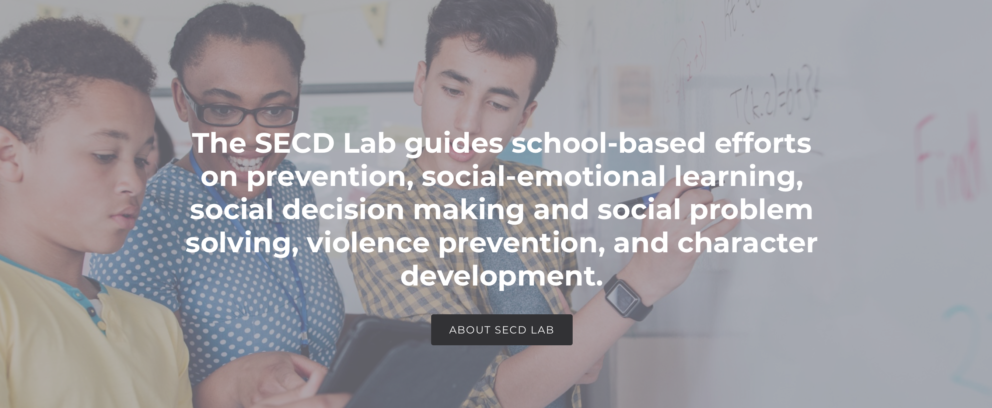Maurice J. Elias, Ph.D.
Rutgers Social-Emotional and Character Development Lab
www.secdLab.org and secdlab@gmail.com
In announcing the creation of a task force to “illuminate the intersection between arts education and social-emotional learning (SEL),” Arts Ed NJ has demonstrated leadership and foresight. Why?
“When you think about the purposes of education, there are three. We’re preparing kids for jobs. We’re preparing them to be citizens. And we’re teaching them to be human beings who can enjoy the deeper forms of beauty. The third is as important as the other two.”
Tom Horne, Ariz. Supt. of Public Instruction, 2009
NJ joined a growing roster of states supporting SEL when the State Board of Education passed a resolution outlining five sets of SEL competencies, identified by the Collaborative for Academic, Social, and Emotional Learning (casel.org), that all children attending NJ schools should learn. These are:
- self-awareness and understanding of emotions;
- self-management, goal-setting and planning;
- social awareness and empathy;
- relationship skills and skills for working in groups; and
- ethical, responsible decision making.
In making what it calls a “synergistic pairing,” Arts Ed NJ will work with NJ’s emerging statewide Alliance for SEL, SEL4NJ (www.SEL4NJ.org, a branch of SEL4US), to create a crosswalk of NJ’s visual and performing arts standards and the SEL competencies identified by the State Board (and posted on the NJDOE web site).
Why This, Why Now?
Historically, arts educators have been building SEL competencies in the course of their work. Teaching students to look carefully at a work of art, understanding the emotions being evoked by that work, discerning the techniques used by the artist to communicate those emotions, understanding, literally, what the artist had to do to create the work of art, and being able to discuss one’s observations in an articulate way and exchange in give and take with those looking at the same work of art who might not see it the same way, cannot proceed effectively in the absence of students’ having SEL competencies.
For years, arts educators have informally and pragmatically sought to build these skills when students have been lacking them. But now that research in SEL has advanced, we understand that students’ lack of SEL affects more than their arts education. It compromises their ability to attain the purposes of education outlined by Tom Horne. And so, more and more schools in NJ, the US, and around the world are working to more intentionally, developmentally teach SEL. Arts educators cannot do this on their own, within their own subject area contact with students. So, the task force exists to explicate ways that arts educators can support “the development of the SEL competencies and to empower them to do so in an intentional way.”
An Example
At the web site, www.secdlab.org/MOSAIC, you can download a lesson at the middle/high school levels that illustrates how arts teachers can join with those whose primary charge in the school is building SEL competencies. The lesson involves examining Norman Rockwell’s pictures depicting the Four Freedoms during World War II and eventually asks students to create their own, contemporary Four Freedoms pictures. While the lesson is set up so that any subject area teacher can carry it out, if an arts educator collaborated in that lesson, he or she would be able to greatly deepen students’ ability to analyze the pictures and plan their own works of art. Further, they would be able to help the lesson articulate to the school’s appropriate grade-level arts education objectives while also building SEL competencies.
I guess that’s what Arts Ed NJ means by a “synergistic pairing.”
Please stay tuned for updates on the Task Force’s work, as well as opportunities for your input and contributions.
Biography: Maurice J. Elias, Ph.D., is Professor, Psychology Department, Rutgers University, Director, Social-Emotional and Character Development Lab www.secdLab.org Co-Director of the Academy for SEL in Schools, which offers certificates in SEL Instruction and School Leadership (SELinSchools.org) and a member of the Leadership Team for SEL4NJ. He received the Joseph E. Zins Memorial Senior Scholar Award for Social-Emotional Learning from CASEL and the Sanford McDonnell Award for Lifetime Achievement in Character Education and writes a blog on SECD for Edutopia (www.edutopia.org/profile/maurice-j-elias) and can be reached at secdlab@gmail.com.

